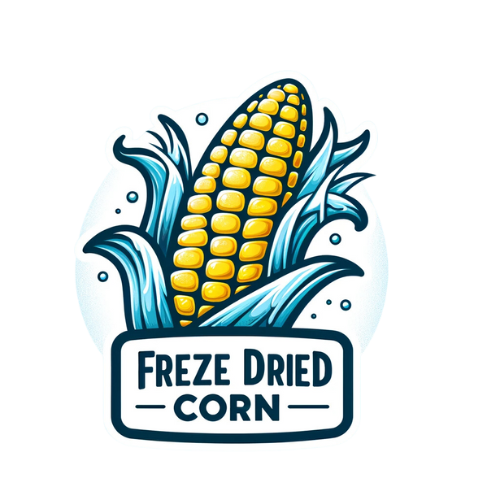Table of Contents
Introduction
Freeze-drying is a popular method of preserving vegetables, offering an excellent way to retain their flavor and nutritional value. In this article, we’ll delve into the world of freeze-dried vegetables, focusing on freeze-dried corn and comparing it to other freeze-dried vegetables. We’ll also explore the advantages of using freeze-dried corn in various dishes and examine how it stacks up against dehydrated vegetables.
What is Freeze-Drying?
Before we dive into the comparison, let’s briefly understand what freeze-drying is. Freeze-drying is a food preservation process that involves freezing the food and then removing the water content through sublimation, leaving behind a lightweight and shelf-stable product. This method helps to retain the taste, color, and nutritional value of the vegetables.
Freeze-Dried Corn in Dried Foods
Freeze-dried corn has gained popularity not only for its convenience but also for its versatility in different culinary applications. Here’s why freeze-dried corn shines in dried foods:
Retained Nutritional Value: Freeze-dried corn retains most of its original nutrients, making it a healthier choice compared to some other preservation methods. The vitamins and minerals are preserved during the freeze-drying process.
Long Shelf Life: Freeze-dried corn has an impressive shelf life, allowing you to store it for extended periods without worrying about spoilage. This makes it an excellent option for emergency food supplies.
Convenience: Freeze-dried corn is lightweight and easy to store, making it a convenient addition to your pantry. It doesn’t require refrigeration and can be rehydrated quickly when needed.
Intense Flavor: The freeze-drying process concentrates the flavor of corn, resulting in a product that bursts with natural sweetness and taste when rehydrated.
Freeze-Dried Corn vs. Other Freeze-Dried Vegetables
Now, let’s compare freeze-dried corn to other freeze-dried vegetables in various aspects:
1. Taste and Flavor:
- Freeze-dried corn is known for its sweet, natural flavor, making it a favorite choice for snacking and adding to recipes.
- Other freeze-dried vegetables may have different flavor profiles, with some being milder or more robust. It depends on the vegetable and the preservation process used.
2. Nutritional Value:
- Freeze-dried corn retains a high level of its original nutrients, including vitamins, minerals, and dietary fiber.
- The nutritional value of other freeze-dried vegetables can vary depending on the specific vegetable and processing techniques. However, freeze-drying, in general, preserves nutrients better than some other preservation methods like canning.
3. Texture and Rehydration:
- Freeze-dried corn typically maintains a pleasant crunchiness even after rehydration, which can be desirable in certain recipes.
- Other freeze-dried vegetables may have varying textures after rehydration, from crisp to slightly chewy, depending on the vegetable and its inherent properties.
4. Shelf Life:
- Freeze-dried corn, like most freeze-dried vegetables, has a long shelf life, often ranging from 20 to 25 years when stored properly.
- The shelf life of other freeze-dried vegetables also depends on the vegetable type and processing but generally extends for many years.
5. Versatility:
- Freeze-dried corn is versatile and can be used in a wide range of dishes, including soups, stews, salads, and as a standalone snack.
- Other freeze-dried vegetables, such as peas, carrots, and broccoli, offer their unique flavor profiles and are suitable for various recipes.
Freeze-Dried Corn vs. Dehydrated Vegetables
In addition to comparing freeze-dried corn to other freeze-dried vegetables, it’s essential to understand how it stacks up against dehydrated vegetables:
1. Rehydration Time:
- Freeze-dried corn typically rehydrates more quickly than dehydrated corn. It regains its original texture and taste faster when exposed to moisture.
2. Nutrient Preservation:
- Freeze-dried corn generally retains more nutrients compared to dehydrated corn, which may experience some nutrient loss due to the higher heat involved in dehydration.
3. Flavor Intensity:
- Freeze-dried corn tends to maintain a more intense and natural flavor compared to dehydrated corn, which can become somewhat muted during the dehydration process.
4. Shelf Life:
- Both freeze-dried corn and dehydrated corn have impressive shelf lives, but freeze-drying typically offers a slight advantage in terms of preserving flavor and nutrients over extended periods.
Conclusion
In the world of freeze-dried vegetables, freeze-dried corn stands out for its sweet taste, excellent texture, and nutritional value. While other freeze-dried vegetables have their own unique qualities, freeze-dried corn’s versatility and flavor make it a favorite choice for many culinary applications. When compared to dehydrated vegetables, freeze-dried corn often excels in rehydration time, nutrient preservation, and flavor intensity. Whether you’re a seasoned chef or simply looking for a nutritious and convenient ingredient, freeze-dried corn deserves a place in your pantry.
In the end, the choice between freeze-dried corn, other freeze-dried vegetables, and dehydrated vegetables depends on your specific culinary needs and preferences. Each option offers its own set of advantages, and experimenting with different types can lead to exciting and delicious.


There are no reviews yet.